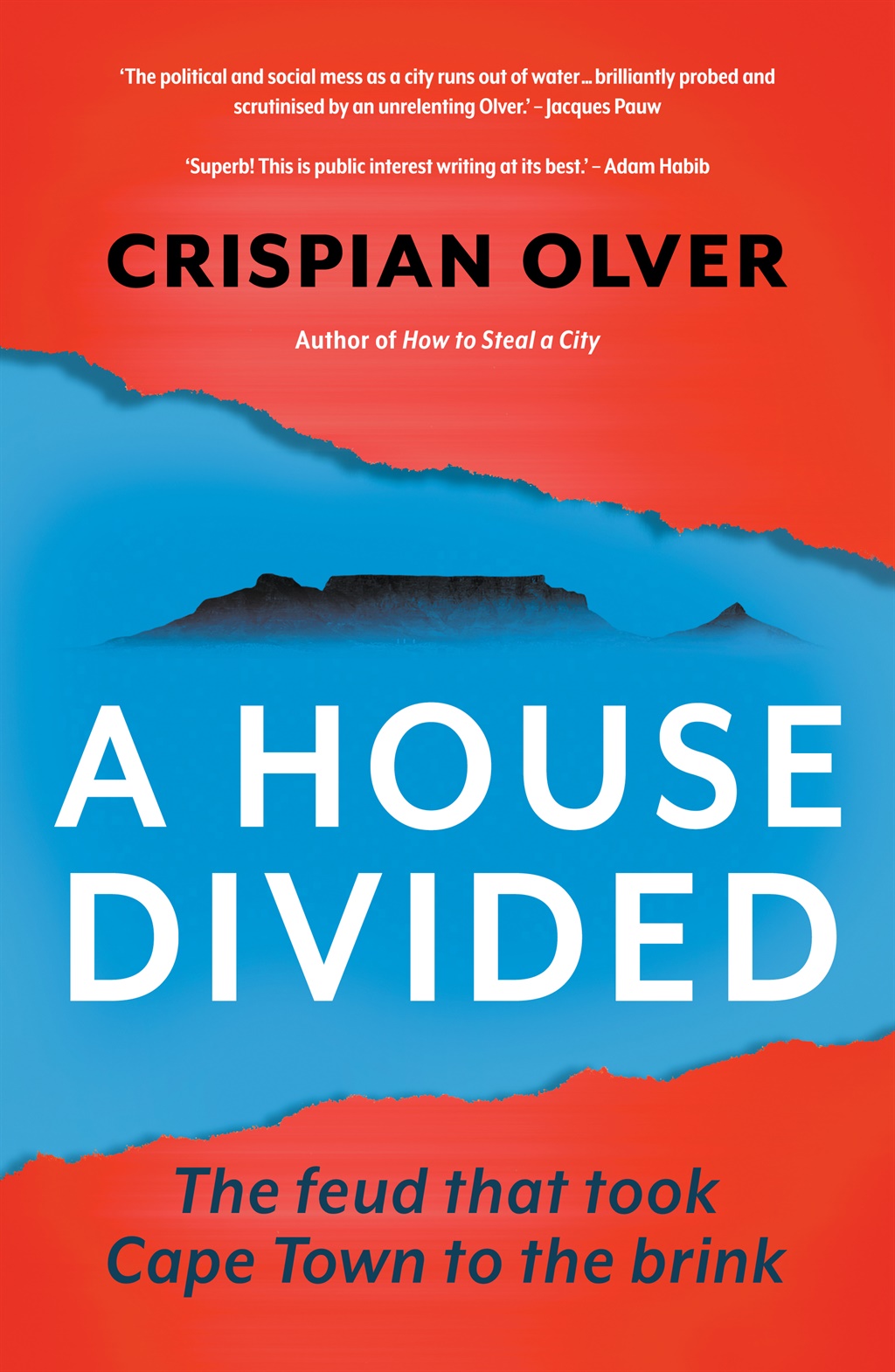
'Those in the support of the mayor's proposal stand on this side,' shouted Suzette Little, the caucus chair, over the hubbub that had broken out in the DA gathering, 'and everyone against it stand on that side.'
It was April 2017, and 150 DA councillors were crammed into a committee room on the spacious mayoral floor of the civic centre. There was a temporary pause in the acrimonious shouting, and the DA's councillors looked shocked, unsure whether to believe this was happening. Usually, disagreements in the caucus were resolved through debate and consensus; sometimes, decisions went to a vote.
In this instance the assistant whip, Rose Rau, had been unable to count the hands in the cramped space, and called for a division. Never before had there been a physical division between those for or against a particular position. To make matters worse, Suzette Little presented the matter as those for the mayor and those against her.
As the city councillors slowly moved to different sides of the room, councillor Malusi Booi led the singing of Senzeni Na? – 'What have we done?' – a well-known struggle song, by the group opposing the motion.
Mayor De Lille threatened them with disciplinary action. This was becoming tense.
The issue dividing the caucus was a payment of R9 million to the V&A Waterfront for the 'maintenance of public open space'. A late memo had been circulated just before the city council convened, signed by De Lille, requesting authorisation for the extraordinary expenditure.
The DA councillors were uneasy about it: the contract with the Waterfront was outdated, such extra payments had not been made before, and the supporting annexures were missing, as were the necessary signatures from officials. A flimsy legal opinion was attached, which indicated that a payment could be made but didn't clarify why this particular payment was due.
During the council's lunch break, the DA caucus had been hastily convened, and clear dividing lines had formed. De Lille had argued that the City was obliged to honour the contract with the Waterfront, even though it was an old agreement that needed to be reviewed. She claimed it was urgent and needed to go through immediately.
But Ian Neilson, the deputy mayor, had put his hand up and said bluntly that the sum being requested didn't have a sufficient justification. Other councillors had joined in, arguing that they hadn't been given sufficient information or supporting documents to decide the merits of the matter.
De Lille had become visibly frustrated, lambasting caucus members for their failure to comply. She'd then threatened to use her recess powers to push the payment through while council was no longer sitting. The meeting had become unruly.
When Little, the chair, had asked for a show of hands, it was difficult to see the people at the rear, and Rau proposed that councillors physically separate.
They did so, and for a long moment, it wasn't clear which of the two groups was the larger, with a number of councillors hesitating in the middle of the room before making their move. Then the group around Malusi Booi seemed to swell: they held the majority, and the payment request was rejected.
The DA councillors opposing the request questioned the true nature of the payment, particularly when De Lille threatened to take legal action to force the council's hand. In a meeting with senior officials after the council meeting, De Lille said that she would approach the courts for a declaratory order to compel the payment to be made. Caucus members were worried that if the V&A Waterfront took the City to court, De Lille would ensure that the City administration didn't defend the case. (A subsequent investigation by the DA noted there was probably no justification for any payment, since the matter was never brought back to council.)
The DA's leadership subsequently lambasted the decision by the caucus chair to call for a physical division as a fractious move that had intimidated members of the caucus, escalated tensions and sown further divisions in an already acrimonious environment. But the die had been cast, and it was as if a poison bomb had exploded inside the caucus. The damage to the party was irrevocable.
Besides some unresolved ideological disagreements, organisational differences clearly created friction and mistrust on both sides. For instance, the ID newcomers rankled at the DA's tight system of control of party activists, and in particular the performance-management system, which measured job performance but also fundraising, and was much hated among the former ID activists. De Lille simply refused to subject herself to it, and her refusal irritated the DA head-office team and raised questions about her motives.
As I already knew from talking to many City officials, De Lille's leadership style and her efforts to centralise power in her office also sowed unhappiness and growing concern. Sims found that she wasn't able to debate with her because she'd already made up her mind. 'It didn't matter what you said, you weren't going to convince her. In the end, her stubbornness counted against her.'
De Lille's primary weakness, said Sims, was that she wouldn't listen to the officials when they tried to guide her.
In her defence, Sims said she felt De Lille was trying to get things done as fast as possible, 'which is the right thing for her to do as the mayor, because she must deliver'.
This reminded me of my own days as a director-general in national government, trying to run a vast bureaucracy that had ossified to the extent that I felt I could get nothing done. After trying all the softer team-building stuff, I had in the end resorted to increasingly disciplinarian measures, at times even threatening and bullying incompetent staff. 'There's going to be blood on the floor' was a phrase I used frequently in front of staff.
Towards the end of my management stint in government, I felt that the job had irrevocably hardened me, turning me into a monster I no longer recognised. So I had some sympathy for De Lille, and I wondered how much her growing frustration towards the bureaucracy and political processes accounted for her outbursts and bullying of staff, as well as the push to centralise power in her office.
'She wanted it done, and even if she had to bend the rules to do it, then you must do it,' Sims explained.
Perhaps De Lille's determination to cut through red tape to speed up delivery and transformation had led her to cut corners instead.
Deputy Mayor Ian Neilson felt that De Lille's struggle background gave her a particularly autocratic style, which didn't sit well within the DA's liberal outlook and deliberative approach. 'Her instinct isn't liberal; she isn't fundamentally a democrat,' he said.
If De Lille displayed autocratic tendencies, I don't buy the view that it has anything to do with her struggle background: having spent what probably amounts to years of my life sitting in political meetings, I can attest that the DA doesn't have a monopoly on inner deliberation and compromise.
De Lille's struggle background might, however, have influenced her stark approach to loyalty and trust. Andrew Boraine, who had set up and run the Cape Town Partnership, a partnership between the City and multiple stakeholders to address urban decay in the CBD, found that if you got on the right side of her, and she liked your projects and programme, then she would back you to the hilt. However, if you fell out with her for any reason, she could be very judgemental, not being able to steer a middle ground. She also took things very personally, and disagreement voiced by officials or councillors was often interpreted as a sign of disloyalty. Boraine recited part of the Henry Wadsworth Longfellow poem, 'When she was good, she was very, very good, but when she was bad, she was horrid.'
Over time, more and more casualties built up as De Lille cast her opponents into oblivion. 'You can't run a big city with too many enemies. You've got to hold your enemies inside the tent, you've got to keep the caucus going. But she fell out with more and more people,' said Boraine.
Belinda Walker felt that De Lille never trusted her – nor, she thought, anyone she didn't have a hold over. 'Patricia doesn't trust anyone who isn't frightened of her. She doesn't understand that you can be a loyal and principled supporter and still argue with her,' she said.
Walker contrasted this with Helen Zille, who didn't think you were disloyal if you disagreed with her; she just thought that you hadn't understood properly.
Shehaam Sims got to the point where she appealed to De Lille to change her attitude. 'You've got to learn to trust us,' she blurted out during a mayoral committee pre-meeting. Sims felt that she could talk frankly in the caucus, where the politicians were supposedly on a more equal footing. 'I'm asking you, please, can you trust us, because we're going to be your support going forward.'
Yet, according to Sims, De Lille harshly criticised senior officials in a way that she felt was unfair and ill informed.
For Sims, it was the last straw. Not long afterwards, in January 2013, she resigned from the mayoral committee and took up a post in Seth Maqetuka's housing department.
* This is an extract from A House Divided by Crispian Olver published by Jonathan Ball Publishers. The book launch takes place at The Book Lounge in Cape Town on October 17 at 18:00.




 Publications
Publications
 Partners
Partners















